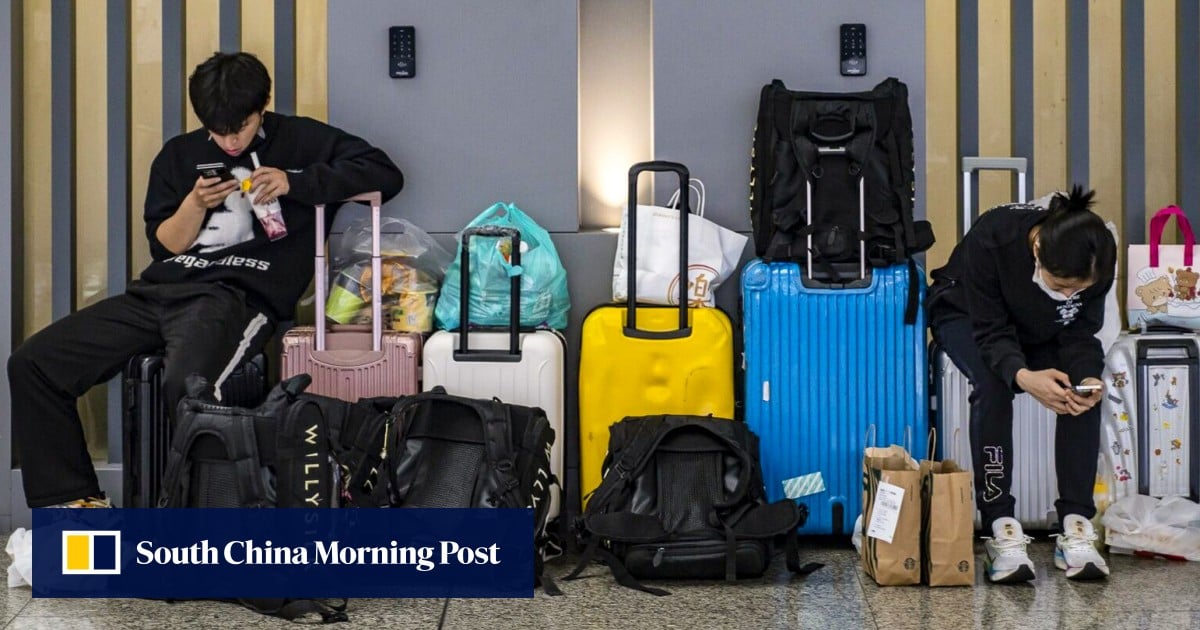


Notices issued by Lanzhou Jiaotong University and the School of Foreign Studies at Jiangsu Normal University were among the strictest, according to local online media ThePaper.cn, citing statements made last week.
A statement on the “management of students’ safety” from the university in Lanzhou, the capital of Gansu province in northwestern China, said “the school does not allow students to organise road trips, group tours or bicycle trips on their own”.
“Students are reminded not to take illegal passenger vehicles in particular, and are strictly prohibited from going out privately or in a group chartered vehicle,” it added.
The foreign studies school in Jiangsu province in eastern China “strictly prohibits classes organising trips in the name of a group during the holidays” for students’ safety.
“Any behaviour that solicits or organises students to travel in the name of associations or individuals must be resolutely curbed”.
Some other schools, such as Peking University, suggested “avoiding solo trips” and advocated travelling with family and friends for students’ safety.
China’s international flights set to take off, but US travel suffering delays
There have been reports in the past of accidents involving university students travelling as a group, especially in the wilderness, but social media commenters and local media columnists said they doubted an absolute ban was better than safety education.
News of the notices has raised the issue of “overregulation” in Chinese universities, some of which have stricter rules than overseas higher education institutions. Controversy arose earlier this year when some universities banned students from hanging curtains over their bed in dormitories.
The institutions cited fire hazards, lighting and ventilation as reasons to stop students using bed curtains to carve out personal space in shared rooms. Some also asserted that students were using the screens to hide forbidden electronic devices or smoking.
Other debates about university control include whether smoking, alcohol and food delivery on campus should be allowed.
“If [the statements are released] as a reminder, then the school’s approach is understandable, but if it is just to avoid responsibility [from students accidents], then this kind of blind ban is not advisable,” Chu Zhaohui, a researcher at the China National Institute of Education Sciences, told Hongxing News, an outlet founded by Chengdu Economic Daily.
Universities should bear in mind their students are adults, and should not interfere in their personal lives too much when managing them, he added.
Columnist Long Minfei wrote on gmw.cn, which is published by Guangming Daily state media: “Schools can appeal and provide guidance [on holiday arrangements], and it is also necessary to cultivate college students’ awareness of risk prevention. But direct prohibition would be the worst approach”.